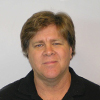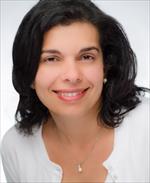The Carbon Slam is led by the the University of California Faculty Climate Action Champions that are working with their communities to build community engagement and awareness on climate change issues and to work towards solutions to climate change.
 Steve Allison, Irvine, is developing an integrated training program that will engage faculty and non-academic partners to train a cohort of climate scholars to translate big ideas into tangible and effective climate solutions.
Steve Allison, Irvine, is developing an integrated training program that will engage faculty and non-academic partners to train a cohort of climate scholars to translate big ideas into tangible and effective climate solutions.
Sue C arter, Santa Cruz, is establishing the sustainability lab (S-lab) to promote carbon emissions reductions and sustainable use of natural resources, providing students with indoor and outdoor laboratory space, educational tools, and resources.
arter, Santa Cruz, is establishing the sustainability lab (S-lab) to promote carbon emissions reductions and sustainable use of natural resources, providing students with indoor and outdoor laboratory space, educational tools, and resources.
Mic hael Dawson, Merced, is building figurative and literal understanding of change and sustainability by developing collaborations in which people from the campus and community explore the concepts of lines, such as shorelines, tree lines and skylines, and change,
hael Dawson, Merced, is building figurative and literal understanding of change and sustainability by developing collaborations in which people from the campus and community explore the concepts of lines, such as shorelines, tree lines and skylines, and change,
 Alex Hall, Los Angeles, is developing an educational and public outreach project to “downscale” information from global climate models to create high-resolution projections of future climate at the neighborhood scale
Alex Hall, Los Angeles, is developing an educational and public outreach project to “downscale” information from global climate models to create high-resolution projections of future climate at the neighborhood scale
 Gretchen Hoffman, Santa Barbara, is engaging undergraduates and creating a team of outreach specialists on climate change issues that are important to the California coast, and working on additional ways to reach non-scientific audience.
Gretchen Hoffman, Santa Barbara, is engaging undergraduates and creating a team of outreach specialists on climate change issues that are important to the California coast, and working on additional ways to reach non-scientific audience.
 Kurt Kornbluth, Davis, is identifying new on-campus opportunities for carbon reduction, creating a new climate-focused curriculum for graduate and undergraduate students, and collaborating with faculty from other disciplines.
Kurt Kornbluth, Davis, is identifying new on-campus opportunities for carbon reduction, creating a new climate-focused curriculum for graduate and undergraduate students, and collaborating with faculty from other disciplines.
Mihri Ozkan, Riverside, is leading a campaign at UC Riverside to encou rage 100 percent recycling, including giving lectures on campus and across UC-campuses on green and sustainable technologies and working with Riverside Public Utilities to increase public awareness on recycling and eco-friendly technology.
rage 100 percent recycling, including giving lectures on campus and across UC-campuses on green and sustainable technologies and working with Riverside Public Utilities to increase public awareness on recycling and eco-friendly technology.
Robert (Skip) Pomeroy, San Diego:
Whendee  Silver, Berkeley, is engaging with the broader campus and community on the social and policy hurdles to implementing land-based climate change mitigation projects and the city of Berkeley in a “garbage to grasslands” project that would capture organic waste and identify options for land application.
Silver, Berkeley, is engaging with the broader campus and community on the social and policy hurdles to implementing land-based climate change mitigation projects and the city of Berkeley in a “garbage to grasslands” project that would capture organic waste and identify options for land application.
Arianne Teherani, San Francisco:


